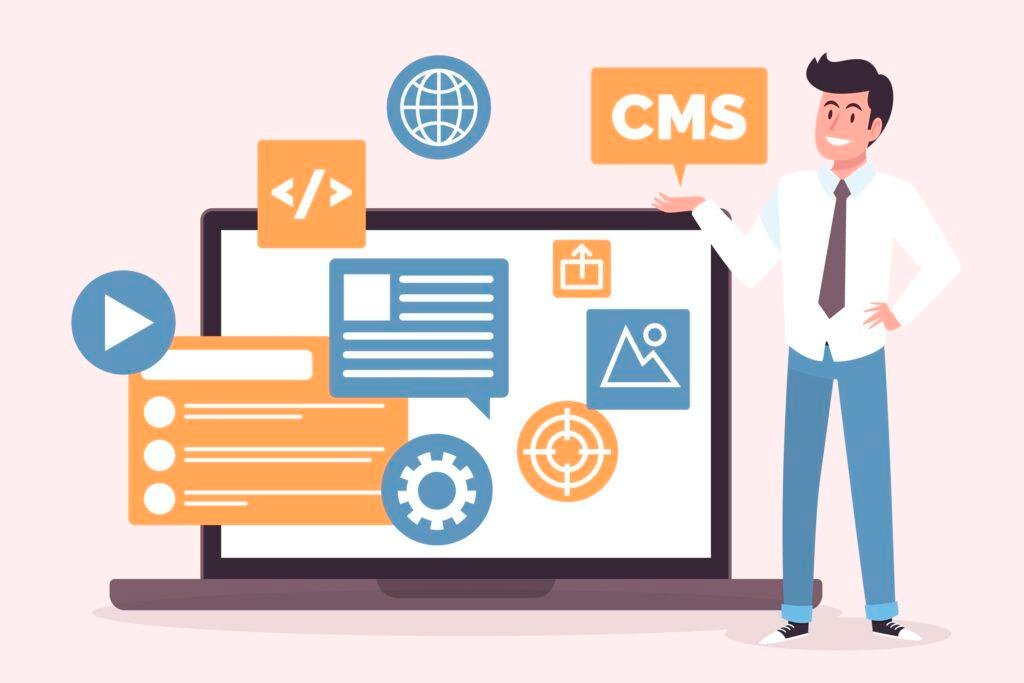
Outline of the Article:
- Introduction to Wix and WordPress
- Limitations of Wix
- Lack of customization options
- Limited SEO capabilities
- Ownership and control issues
- Advantages of WordPress
- Extensive customization options
- Superior SEO features
- Complete ownership and control
- Migration process from Wix to WordPress
- Backup your Wix site
- Choose a hosting provider
- Install WordPress
- Import content from Wix
- Adjustments and customization on WordPress
- Selecting a theme
- Installing plugins
- Customizing design and functionality
- SEO optimization on WordPress
- Keyword research and optimization
- Improving site speed and performance
- Optimizing content for search engines
- Ensuring a smooth transition
- Testing the new WordPress site
- Redirecting Wix URLs
- Notifying search engines of the change
- Conclusion
- Recap of the benefits of switching from Wix to WordPress
- Encouragement to make the switch
Introduction to Wix and WordPress
Wix and WordPress are two of the most widely used platforms for building websites. Wix is known for its drag-and-drop interface and beginner-friendly approach, making it a popular choice for those with little to no technical expertise. On the other hand, WordPress is an open-source content management system that powers over 40% of all websites on the internet. It offers a vast array of themes, plugins, and customization options, making it highly adaptable to any project.In this article, we’ll explore why switching from Wix to WordPress is a smart choice for individuals and businesses looking to elevate their online presence
Limitations of Wix
Lack of customization options
While Wix’s drag-and-drop editor makes it easy to create a website, it comes with limitations in terms of customization. Users are restricted to the features and functionalities provided by Wix, limiting the ability to create a truly unique and tailored website.
Limited SEO capabilities
SEO is crucial for ensuring that your website ranks well in search engine results. However, Wix’s SEO capabilities are somewhat limited compared to WordPress. It lacks advanced SEO features and flexibility, making it challenging to optimize your website for search engines effectively.
Ownership and control issues
When you build a website on Wix, you’re essentially renting space on their platform. This means that you have limited control over your website and its data. If Wix were to shut down or change its policies, you could potentially lose access to your site, jeopardizing your online presence.
Advantages of WordPress
Extensive customization options
WordPress offers unparalleled flexibility and customization options. With thousands of themes and plugins available, you can easily create a website that perfectly suits your needs and preferences. Whether you’re building a blog, an e-commerce store, or a portfolio site, WordPress has the tools you need to make it happen.
Superior SEO features
One of the biggest advantages of WordPress is its robust SEO capabilities. With built-in features like customizable permalinks, meta tags, and sitemaps, WordPress makes it easy to optimize your website for search engines. Additionally, there are countless SEO plugins available that can further enhance your site’s visibility online.
Complete ownership and control
Unlike Wix, WordPress gives you complete ownership and control of your website. You host your site on your own server, which means you have full control over your data and can make changes to your site as you see fit. This ensures that your online presence remains secure and stable, regardless of external factors.
Migration process from Wix to WordPress
Backup your Wix site
Before making the switch to WordPress, it’s essential to backup your Wix site to ensure that you don’t lose any valuable data or content.
Choose a hosting provider
Next, you’ll need to choose a hosting provider for your WordPress site. There are many options available, so be sure to research and select one that meets your needs and budget.
Install WordPress
Once you’ve chosen a hosting provider, you can install WordPress with just a few clicks. Most hosting providers offer one-click installation, making the process quick and straightforward.
Import content from Wix
After installing WordPress, you can easily import your content from Wix using built-in tools or third-party plugins. This will ensure that your website’s content is seamlessly transferred to the new platform.
Adjustments and customization on WordPress
Selecting a theme
With WordPress, you have access to thousands of themes to choose from. Whether you’re looking for a sleek and modern design or something more traditional, there’s a theme out there for you.
Installing plugins
Plugins are tools that extend the functionality of your WordPress site. From SEO optimization to e-commerce functionality, there are plugins available for virtually every need.
Customizing design and functionality
WordPress allows you to customize every aspect of your website, from the layout and color scheme to the fonts and images. With a bit of creativity and experimentation, you can create a website that truly reflects your brand and personality.
SEO optimization on WordPress
Keyword research and optimization
Keyword research is the foundation of any successful SEO strategy. With WordPress, you can easily conduct keyword research and optimize your content for search engines using built-in tools and plugins.
Improving site speed and performance
Site speed is a critical factor in SEO rankings. WordPress offers a variety of tools and techniques to improve site speed and performance, ensuring that your website loads quickly and efficiently.
Optimizing content for search engines
In addition to keyword optimization, WordPress makes it easy to optimize your content for search engines in other ways, such as optimizing images, creating SEO-friendly URLs, and implementing schema markup.
Ensuring a smooth transition
Testing the new WordPress site
Before making your WordPress site live, it’s essential to thoroughly test it to ensure that everything is working correctly. This includes checking for broken links, testing forms and functionality, and ensuring that the site looks good on different devices and browsers.
Redirecting Wix URLs
To ensure that your site’s SEO rankings aren’t negatively impacted by the switch from Wix to WordPress, it’s essential to set up proper redirects for your old Wix URLs. This will ensure that any traffic or backlinks to your old site are redirected to the appropriate pages on your new WordPress site.
Notifying search engines of the change
Finally, be sure to notify search engines of the change to your website’s URL structure. This will help ensure that your site’s SEO rankings are properly transferred from Wix to WordPress.
Conclusion
In conclusion, switching from Wix to WordPress is a smart choice for individuals and businesses looking to take their online presence to the next level. With its extensive customization options, superior SEO features, and complete ownership and control, WordPress offers unparalleled flexibility and functionality. By following the migration process outlined in this article and taking advantage of WordPress’s robust features, you can create a website that stands out from the crowd and drives results for your business.
FAQs
- Is it difficult to switch from Wix to WordPress?
- While the migration process may seem daunting at first, it’s relatively straightforward with the right tools and guidance.
- Will I lose my website’s content when switching to WordPress?
- No, you can easily import your content from Wix to WordPress using built-in tools or third-party plugins.
- Do I need coding skills to use WordPress?
- No, WordPress is designed to be user-friendly and accessible to people of all skill levels. You can create a professional-looking website without any coding knowledge
- Can I customize the design of my WordPress site?
- Yes, WordPress offers thousands of themes and plugins that allow you to customize every aspect of your website’s design and functionality.
- Is WordPress better for SEO than Wix?
- Yes, WordPress offers superior SEO features and flexibility compared to Wix, making it easier to optimize your website for search engines.





